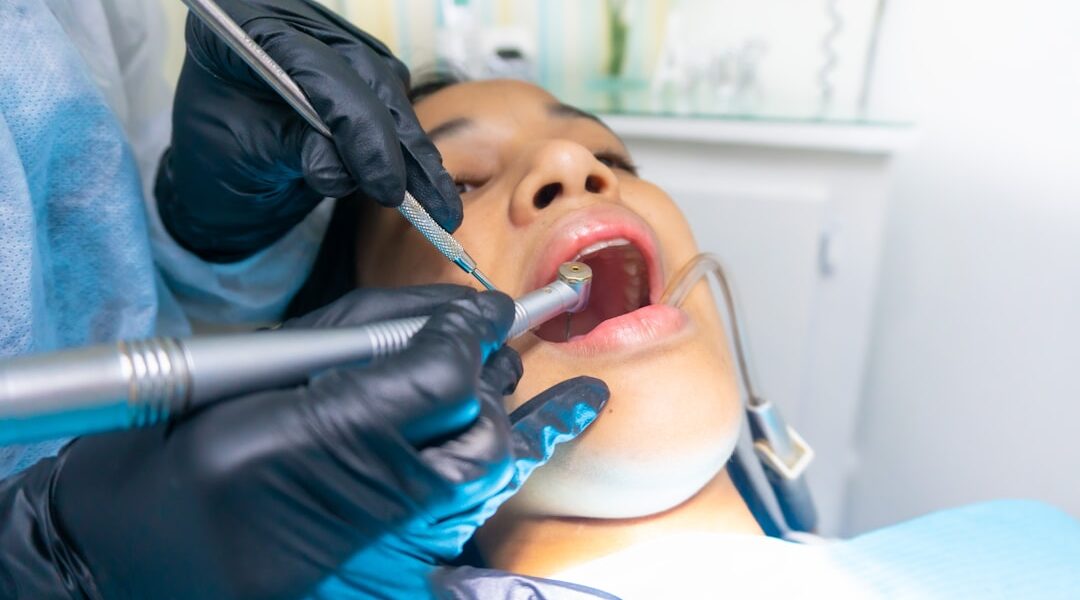In recent years, dental tourism has emerged as a significant trend among British patients seeking affordable dental care. This phenomenon has been fuelled by a combination of rising dental costs in the UK, long waiting times for certain procedures, and the increasing availability of high-quality dental services abroad. As a result, many individuals are now considering travelling overseas for treatments that range from routine check-ups to complex procedures such as implants and cosmetic dentistry.
The allure of combining a holiday with dental care has made this option particularly appealing, leading to a surge in the number of British patients venturing abroad for their dental needs. The rise of dental tourism is not merely a passing fad; it reflects broader changes in consumer behaviour and attitudes towards healthcare. With the advent of the internet, patients are now more informed than ever about their options.
They can easily research clinics, read reviews, and compare prices across different countries. This accessibility has empowered patients to take control of their dental health, prompting many to explore alternatives that offer both quality care and cost savings. Consequently, dental tourism has become an integral part of the healthcare landscape for many Britons.
Factors Driving British Patients to Seek Dental Treatment Abroad
Several factors contribute to the growing trend of British patients seeking dental treatment abroad. One of the most significant is the cost disparity between dental services in the UK and those available in other countries. In the UK, dental care can be prohibitively expensive, particularly for procedures not covered by the National Health Service (NHS).
For instance, cosmetic treatments such as veneers or teeth whitening can cost thousands of pounds, prompting patients to look for more affordable options overseas. Additionally, long waiting times for certain treatments within the NHS can be a major deterrent for patients who require immediate care. Many individuals find themselves on lengthy waiting lists for procedures that could be completed much sooner in countries with a robust private dental sector.
This urgency often leads patients to consider travelling abroad, where they can receive timely treatment without the delays associated with the UK healthcare system. The combination of cost savings and reduced waiting times makes dental tourism an attractive option for many.
Popular Destinations for British Dental Tourists
When it comes to dental tourism, several countries have emerged as popular destinations for British patients. Hungary is often cited as one of the leading choices due to its reputation for high-quality dental care at competitive prices. Cities like Budapest have become hubs for dental clinics that cater specifically to international patients, offering a range of services from basic check-ups to advanced cosmetic procedures.
The presence of English-speaking staff and modern facilities further enhances its appeal. Another notable destination is Turkey, which has seen a significant influx of British dental tourists in recent years. The country is renowned for its affordable dental implants and cosmetic dentistry options, often at a fraction of the cost found in the UK.
The combination of quality care and the opportunity to enjoy a holiday in a beautiful location makes Turkey an enticing choice for many. Other countries such as Poland, Spain, and Thailand also attract British patients seeking dental treatment, each offering unique advantages in terms of cost, quality, and accessibility.
A critical factor influencing the decision to pursue dental treatment abroad is the stark contrast in costs between the UK and popular dental tourism destinations. For example, a single dental implant in the UK can cost anywhere from £2,000 to £3,000, depending on various factors such as location and complexity. In contrast, the same procedure in Hungary or Turkey may only set a patient back between £600 and £1,200.
This significant price difference is often enough to sway patients towards considering overseas options. Moreover, routine procedures such as teeth whitening or crowns also exhibit considerable price variations. In the UK, teeth whitening can cost around £400 to £800, while in countries like Poland or Spain, it may be available for as little as £100 to £300.
Such disparities highlight the financial incentives for British patients to explore dental tourism as a viable alternative to traditional care within the UK. However, while cost is a primary motivator, it is essential for patients to consider other factors such as quality and aftercare when making their decisions.
Quality of Care: What British Dental Tourists Can Expect
| Quality of Care Metrics | Expectations |
|---|---|
| Clinic Accreditation | Most clinics are accredited by the General Dental Council (GDC) ensuring high standards of care. |
| Dentist Qualifications | British dental tourists can expect dentists to have undergone rigorous training and be registered with the GDC. |
| Hygiene Standards | Clinics adhere to strict hygiene standards to ensure patient safety and well-being. |
| Modern Facilities | Many dental clinics in popular tourist destinations offer modern facilities and state-of-the-art equipment. |
| Language Proficiency | English-speaking dentists and staff members are commonly available to cater to British dental tourists. |
While cost is undoubtedly a significant factor in choosing dental tourism, quality of care remains paramount for patients considering treatment abroad. Many clinics catering to international patients have invested heavily in modern technology and facilities to ensure they meet or exceed international standards. For instance, numerous clinics in Hungary and Turkey are equipped with state-of-the-art equipment and adhere to strict hygiene protocols that align with European Union regulations.
Furthermore, many dentists in these countries have received training or qualifications from reputable institutions in Western Europe or North America. This level of expertise often translates into high-quality care that rivals that found in the UK. Patients can expect thorough consultations, detailed treatment plans, and comprehensive aftercare services when they choose reputable clinics abroad.
However, it is crucial for patients to conduct thorough research and read reviews before selecting a clinic to ensure they receive the best possible care.
Legal and Ethical Considerations for Dental Tourism
As with any form of medical tourism, there are legal and ethical considerations that British patients must navigate when seeking dental treatment abroad. One primary concern is the lack of regulation in some countries regarding dental practices. While many clinics operate under strict guidelines, others may not adhere to the same standards expected in the UK.
This discrepancy can lead to varying levels of care and potential complications if something goes wrong during or after treatment. Additionally, patients should be aware of their rights regarding aftercare and follow-up treatment when receiving care abroad. In some cases, complications may arise after returning home, leaving patients uncertain about how to address these issues within the UK healthcare system.
It is advisable for patients to discuss potential risks with their chosen clinic and ensure they have a clear understanding of what support will be available should complications occur.
Tips for British Dental Tourists Planning Treatment Abroad
For those considering dental tourism, careful planning is essential to ensure a smooth experience. First and foremost, thorough research is crucial; patients should investigate various clinics, read reviews from previous patients, and verify credentials before making a decision. Websites that specialise in medical tourism can provide valuable insights into reputable clinics and patient experiences.
Additionally, it is wise to communicate directly with potential clinics before travelling. Patients should ask questions about treatment plans, costs, and aftercare procedures to ensure they feel comfortable with their choice. Furthermore, arranging travel insurance that covers potential complications related to dental treatment abroad can provide peace of mind during the journey.
Finally, scheduling follow-up appointments with local dentists upon returning home can help monitor any ongoing issues and ensure continuity of care.
The Impact of Dental Tourism on the UK Healthcare System
The rise of dental tourism has implications for the UK healthcare system that extend beyond individual patient choices. As more people opt for treatment abroad, there may be a noticeable impact on NHS resources and funding. With fewer patients seeking private dental care within the UK due to the allure of cheaper options overseas, private practices may experience reduced income levels.
Moreover, this trend could lead to increased pressure on NHS services as patients return with complications or require follow-up care after receiving treatment abroad. The potential influx of cases related to overseas treatments may strain resources further and divert attention from other pressing healthcare needs within the system. As such, it is essential for policymakers to consider these dynamics when addressing the future of dental care in Britain.
Case Studies: British Patients’ Experiences with Dental Tourism
Examining individual case studies can provide valuable insights into the experiences of British patients who have pursued dental tourism. For instance, one patient from London travelled to Budapest for a series of cosmetic procedures including veneers and teeth whitening. She reported being impressed by the professionalism of the clinic staff and the quality of care she received throughout her stay.
The overall cost savings allowed her not only to receive her desired treatments but also enjoy a short holiday in Hungary. Conversely, another patient’s experience highlights potential pitfalls associated with dental tourism. After undergoing implant surgery in Turkey, he returned home only to experience complications that required additional treatment from an NHS dentist.
This case underscores the importance of thorough research and understanding potential risks before embarking on dental tourism journeys.
The Future of Dental Tourism for British Patients
Looking ahead, it seems likely that dental tourism will continue to grow in popularity among British patients seeking affordable care options. As globalisation continues to shape healthcare access and delivery models evolve, more individuals will likely explore overseas treatments as viable alternatives to traditional options within the UK. Advances in technology will also play a role; telemedicine may facilitate pre-treatment consultations and post-operative follow-ups remotely.
However, challenges remain that could impact this trend moving forward. Regulatory changes within both domestic and international contexts may alter how clinics operate or how patients access care abroad. Additionally, economic fluctuations could affect travel costs or patient willingness to invest in overseas treatments during uncertain times.
Expert Advice for British Dental Tourists Considering Treatment Abroad
For those contemplating dental tourism, expert advice can be invaluable in navigating this complex landscape effectively. First and foremost, consulting with a trusted local dentist before making any decisions can provide clarity on what treatments are necessary and whether they are suitable for overseas procedures. This initial consultation can help set realistic expectations regarding outcomes and costs.
Furthermore, seeking recommendations from friends or family who have undergone similar experiences can offer insights into reputable clinics or practitioners abroad. Engaging with online forums dedicated to dental tourism can also provide additional perspectives from fellow travellers who have navigated similar journeys successfully. Ultimately, being well-informed and prepared will empower British patients considering dental treatment abroad to make choices that align with their health needs while maximising both quality and affordability.
Source: MED Travel Connect – dental treatment medical travel
If you are considering dental treatment medical tourism, you may want to read the article on sznurkowyswiat.pl that discusses the benefits and risks of travelling abroad for dental care. This informative piece provides valuable insights into the growing trend of seeking dental treatment in other countries. It is essential to weigh the pros and cons before making such an important decision for your oral health. For more information on dental tourism or to get in touch with a reputable clinic overseas, visit sznurkowyswiat.pl.
FAQs
What is dental treatment medical tourism?
Dental treatment medical tourism refers to the practice of travelling to another country to receive dental care at a lower cost than in one’s home country. This often involves combining dental treatment with a holiday or leisure activities.
Why do people choose dental treatment medical tourism?
People choose dental treatment medical tourism for various reasons, including lower costs, access to high-quality dental care, shorter waiting times, and the opportunity to combine treatment with a holiday or leisure activities.
Which countries are popular for dental treatment medical tourism?
Countries such as Mexico, Thailand, Hungary, India, and Costa Rica are popular destinations for dental treatment medical tourism due to their lower costs, high-quality dental care, and well-established medical tourism infrastructure.
What types of dental treatments are commonly sought through medical tourism?
Common dental treatments sought through medical tourism include dental implants, crowns and bridges, veneers, teeth whitening, orthodontic treatments, and oral surgeries.
What are the potential risks of dental treatment medical tourism?
Potential risks of dental treatment medical tourism include language barriers, differing standards of care, limited legal recourse in case of malpractice, and the need for follow-up care back home.
How can one ensure a safe and successful dental treatment medical tourism experience?
To ensure a safe and successful dental treatment medical tourism experience, it is important to thoroughly research the dental clinic and the qualifications of the dental professionals, seek recommendations, understand the treatment plan and costs, and consider travel and accommodation arrangements.
Wszechstronny autor, który na sznurkowyswiat.pl dzieli się swoimi przemyśleniami na temat szerokiej gamy zagadnień. Z pasją do eksplorowania różnych dziedzin życia, prezentuje czytelnikom artykuły, które zachęcają do refleksji i poszerzania horyzontów. Jego teksty są źródłem inspiracji dla osób poszukujących nowej wiedzy i perspektyw.






